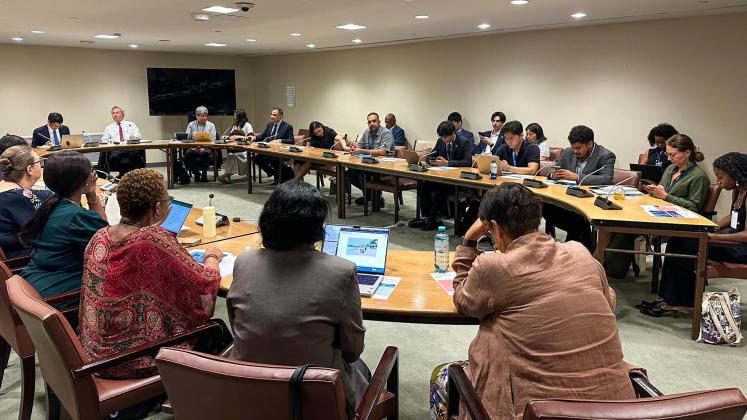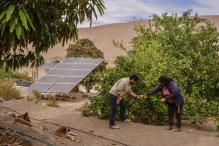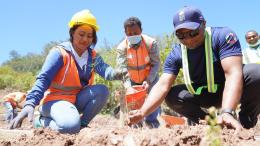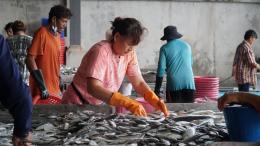On 18 July 2025, UNU convened experts at the UN High-Level Political Forum on Sustainable Development (HLPF) in New York to discuss links between ocean plastic pollution and human health. Held at UN headquarters, the event deepened understanding of this complex interconnection and developed strategies for bridging action on SDG 3 (good health & well-being) and SDG 14 (life below water).
The event built on the outcomes of the 2025 UN Ocean Conference and advanced policy dialogue for ongoing processes including the Intergovernmental Negotiating Committee on Plastic Pollution and the UN Framework Convention on Climate Change (UNFCCC).
Experts from the UN system, governments and academia shared knowledge on how ocean plastic contamination is affecting human health and well-being, and identified opportunities to strengthen partnerships between stakeholders of SDG 3 and SDG 14. The discussion highlighted the urgent need to strengthen science–policy dialogue and interdisciplinary research and education on these interlinkages.
Opening the event, Xiaomeng Shen (Vice-Rector in Europe, UNU; Director, UNU Institute for Environment and Human Security) underlined the interdependence between human health and the health of the ocean. She welcomed the recent adoption of a UN Human Rights Council resolution recognizing the links between plastic pollution, ocean protection and the right to a clean, health and sustainable environment.
Delivering the first of two keynote speeches, René Haak (Head of Section, Science & Technology and Minister-Counselor, Embassy of Germany in Washington, D.C.) emphasized the clear scientific evidence on the harmful health impacts of microplastics and nanoplastics. He noted the challenge of translating scientific knowledge into policy, calling for investment in global platforms for science–policy dialogue and partnerships. Takuma Kato (Counselor, Permanent Mission of Japan to the United Nations) underscored the importance of the human security approach in addressing the health impacts of plastic pollution, as well as the emerging concept of environmental determinants of health. He noted the need for a transition strategy in the health sector to reduce its reliance on plastic devices and products.
A panel discussion was moderated by Yasushi Katsuma (Academic Programme Advisor, UNU-IAS). Revati Phalkey (Director, UNU International Institute for Global Health) noted the need to address the health risks of plastics throughout the product lifecycle — including in the health sector by reducing, detoxifying and reusing plastics. At the same time, we need to ensure access to safe and effective health products that are affordable, accessible and appropriate. Abheet Solomon (Global Programme Lead for Environmental Health, UNICEF) outlined how plastics are impacting the health of today’s children, who belong to “generation plastic” — exposed to plastic even before they are born. He called for a systemic shift to protect children, including increased chemical transparency and product safety.
Highlighting outcomes of the 2025 UN Ocean Conference, Shinobu Yume Yamaguchi (Director, UNU-IAS) welcomed the promise of urgent action, but cautioned that progress remained woefully short on the 30 x 30 target for protecting the ocean. She underscored the need for multi-stakeholder partnerships to accelerate integrated solutions for SDG 3 and SDG 14. Melissa Brown (Deputy Director, MacMillan Center for International & Area Studies, Yale University) emphasized the crucial contribution of higher education institutions to achieving the SDGs through testing solutions, collecting and analyzing data, and empowering students. Translating research into action is a key challenge, requiring interdisciplinary approaches and stronger connections between researchers and policymakers.
A wide-ranging discussion with participants considered how to develop alternatives to plastic products, the role of youth in raising awareness of the issue, and approaches for higher education institutions can promote the interdisciplinary research that is needed. Participants also addressed the role of UN organizations in tackling interlinked risks and challenges related to SDG 3 and SDG 14.
This HLPF side event, Human Security and the Health Impacts of Ocean Plastic Pollution — Interlinkages between SDG 3 and SDG 14, was organized by UNU, UNICEF, the Federal Government of Germany and the Government of Japan.




